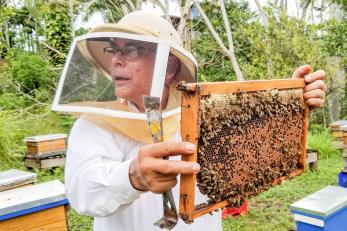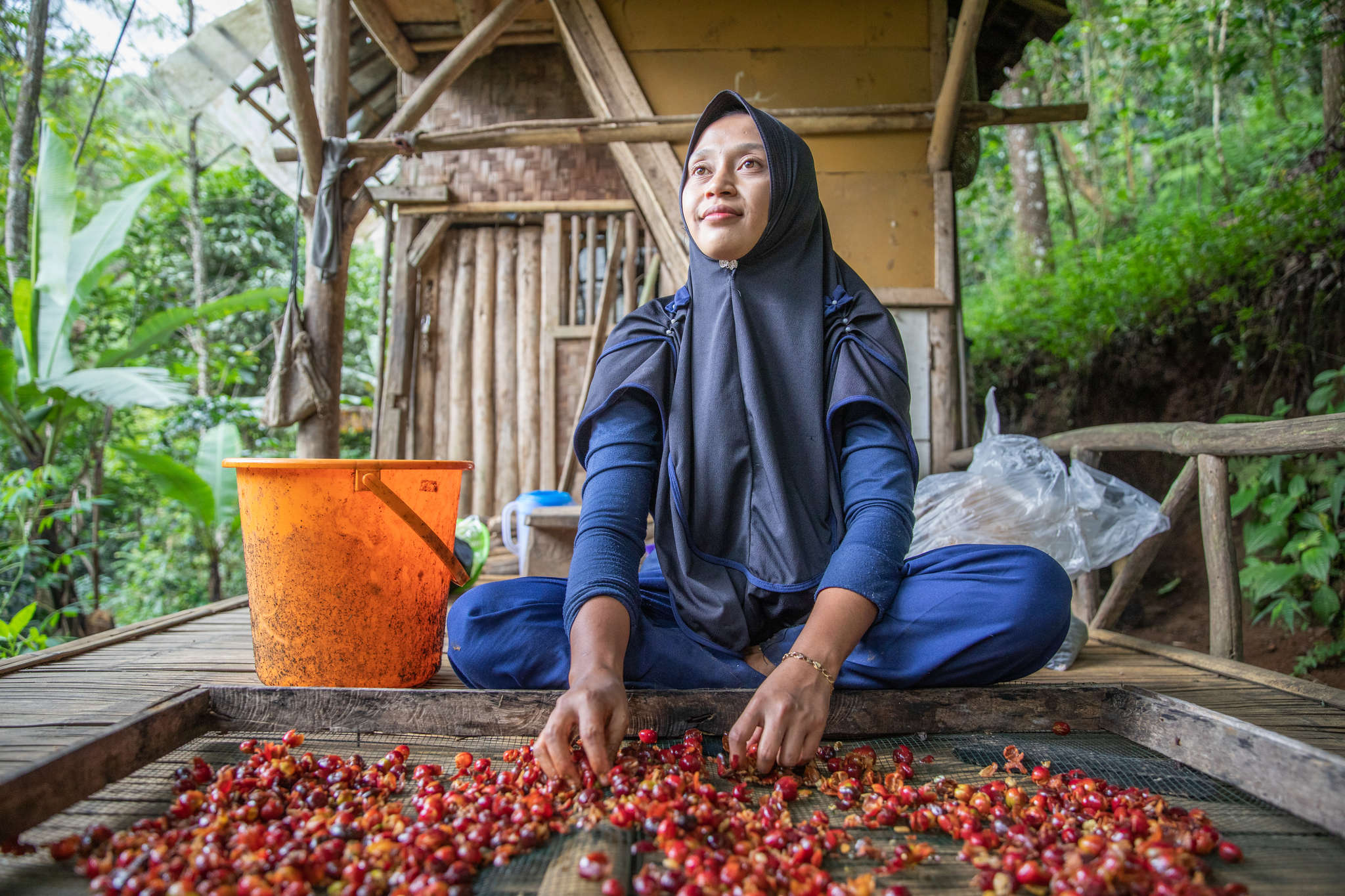Honey bees bring sweet success

From Kenya to Georgia, Nepal to Puerto Rico, honey has the power to help create jobs, boost food security, and protect the environment. Whether through the global export of award-winning honey products or as a sustainable livelihood source for small-scale farmers, beekeeping plays an important role in many Mercy Corps programmes.
Bringing back bees in Nepal
In Nepal, beekeepers were troubled when their hives were growing vacant. One of the causes of the large-scale disappearance of honey bees was the chemical pesticides that some farmers relied on to manage insect infestations. Not only are these pesticides expensive, they also have a significant negative impact on human health and the environment. The loss of bees led to lost livelihood opportunities in many communities.
In one year, Mercy Corps trained more than 35,000 farmers to use natural methods to manage pests. The pest control practices were less harmful to the health of the community and the environment while also lowering costs for farmers. Remarkably, honey bees began to return. Farmers saw how sustainable agricultural practices protect their own health and that of the environment, while also helping them earn income from honey production.

A Georgian beekeeping revival
Across Georgia, in the Caucasus highlands, a centuries-old beekeeping practice almost vanished when a programme supported by Mercy Corps helped bring it back. In 2014, we worked with local partners to reestablish Jara, the traditional method of domesticating wild bees in hollowed wooden logs. This sustainable technique leaves a portion of the hive for the bees instead of harvesting all of it for humans, helping to protect bee populations.
In addition to reviving an ancient practice, Mercy Corps has been working to grow Georgia’s agricultural and tourism economy. We help beekeepers reach both local and global export markets, supporting Georgian beekeepers to create awareness for their specialised wild honey. Women and youth who are already involved in supporting local tourism are trained in the production of Jara honey. By bridging beekeeping and rural tourism, highlighting the area’s biodiversity for visitors, we’ve created more livelihood opportunities for the community.
Georgian honey is now winning international awards for its delicious taste and texture. Bees are healthier and fewer antibiotics are necessary since preventative methods keep bee colonies safe from disease. Healthy bees are flourishing, producing specialty Jara honey that continues to set a high bar for quality in Georgia and beyond.

Resilient bees and resilient people in Puerto Rico
Amid the devastation brought on by Hurricane Maria in Puerto Rico, the storm killed about 80% of the bee population. In the hurricane’s aftermath, Mercy Corps supported more than 500 farmers, fisherfolk, and beekeepers whose livelihoods were devastated by the storms. We developed solutions according to their unique needs, providing beekeepers with high quality beehives to replace those destroyed by the storm, as well as training and access to global beekeeping conferences and connections.
Restoring and protecting Puerto Rican bees is vital for both the island’s recovery and bringing back bee populations around the world. Some farmers in Puerto Rico depend on bees for their harvests because they’re essential for agriculture—many crops rely on them for pollination and increasing yields as farmers rebuild after the hurricane. Puerto Rican bees may also be key to helping declining bee populations outside of their island. Scientists have learned that Puerto Rican honey bees are more resilient to disease and parasites and their genes could offer a solution to building strong honey bee colonies everywhere.
Honey bees are crucial for our ecosystems to survive and thrive. Whether in the wake of a natural disaster or to help preserve traditional techniques, our programmes adapt to the specific and unique needs of beekeepers from region to region. Working directly with beekeepers, farmers, and communities is at the core of our work to support sustainable practices and livelihoods for generations to come.


